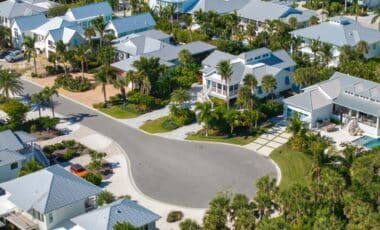The Trump administration has halted a $1 billion program aimed at preserving aging affordable housing, leaving thousands of low-income households uncertain about future living conditions, according to The Associated Press (AP).
The move comes as part of broader budget cuts at the Department of Housing and Urban Development (HUD), led by directives from the Department of Government Efficiency (DOGE).
Critical Funding Cut Jeopardizes Affordable Housing Projects
The Green and Resilient Retrofit Program, a $1 billion federal initiative passed in 2022, was designed to support necessary upgrades in affordable housing units, such as roof repairs, energy-efficiency improvements, and floodproofing measures.
In return for receiving grants and loans, property owners were required to maintain affordable rents for up to 25 years, helping ensure stable housing for low-income tenants.
According to the AP, HUD had already allocated funding for projects that would upgrade at least 25,000 units across the country. However, internal documents indicate that the program is being “terminated” under DOGE’s direction.
HUD has not provided public clarification on how existing contracts will be handled, leaving property managers and tenants in uncertainty.
Housing advocates warn that without this funding, many buildings will fall into disrepair, potentially forcing thousands of low-income families and elderly residents into a precarious situation.
Greg Franks, president of a property management company overseeing affordable housing in Vancouver, Washington, told the AP that losing the program’s funding “seriously jeopardizes our ability to be able to provide an upgrade to the current systems.”
Tenants and Developers Face Uncertainty
For many residents, particularly seniors living on fixed incomes, the sudden funding halt has raised deep concerns. Al Hase and Joan Starr, a retired couple in their 70s, have lived for 16 years in Smith Tower Apartments, a 170-unit building from the 1960s that was set to receive $10 million in funding.
Without these funds, necessary repairs—including the building’s first sprinkler system—are now uncertain.
“We are depending on that $10 million,” Franks told the AP, adding that the financial loss could delay or even cancel the $100 million renovation project. For residents like Hase and Starr, the funding loss is not just about infrastructure—it’s about having a safe, livable home.
“If this building were not here, a lot of our folks actually probably would be homeless,” said Michelle Arevalos, the building’s administrator, according to the AP.
Across 42 states, the District of Columbia, and Puerto Rico, housing organizations are now scrambling to find alternative funding. Some projects will still receive financial support, but the majority remain in limbo.
Travis Phillips of the Housing Development Center acknowledged that while funding gaps can sometimes be filled, delays will inevitably make projects more expensive and difficult to complete.
With no official statement from HUD, housing advocates continue to push for clarity on how the program’s termination will be managed. Meanwhile, thousands of tenants are left wondering how this decision will shape their future housing security.









